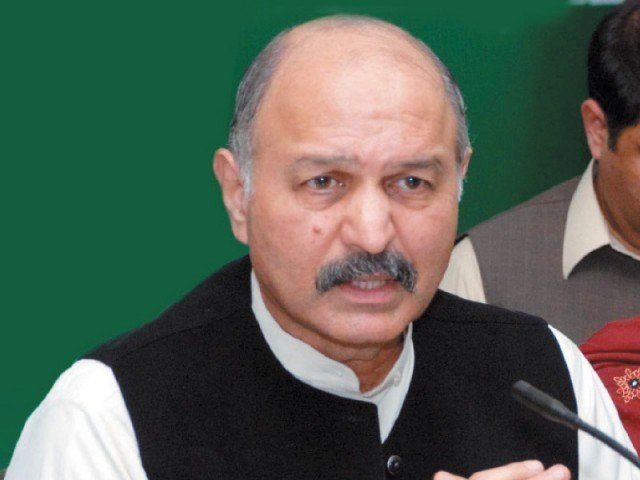
Senate Defence Committee Chairman Senator Mushahid Hussain Sayed said on Monday that Pakistan cannot be a party to any new conflict, confrontation and cold war as the post-pandemic world order calls for cooperation and connectivity.
Speaking at a webinar hosted by the Pakistan-China Institute, he said that Pakistan was at a strategic location where huge transformations and transitions were taking place, including the retrenchment of American power and the peaceful rise of China.
He added that Pakistan was thus endeavouring to be the hub of regional connectivity through the China-Pakistan Economic Corridor (CPEC) by making a transition from geopolitics to geo-economics.
Read more: 'Muslim middle powers can no longer be dictated by West’
“After 42 years of war in Afghanistan, which affected Pakistan directly, the country cannot be a party to any new conflict, confrontation, or a Cold War,” the senator said, adding that connectivity and cooperation are the need of the hour.
Similarly, Mushahid also called for an end to the war in Ukraine, saying that it was raising new tensions and has had unexpected consequences like food and fuel shortages. He underlined the need for proactively promoting CPEC, terming it as the most significant diplomatic and developmental initiative of the 21st century.
The senator hoped that all Asian countries would stay away from any cold war, saying that the United States was still clinging to a military-centric approach but conversely China seeks an economic-driven vision through connectivity and regional cooperation, particularly through the Belt and Road Initiative (BRI), which now has 145 countries and 32 international organisations in its fold.
Mushahid, along with experts from three continents, called for greater cooperation and connectivity to combat common challenges like climate change, hunger, poverty, and the pandemic, while rejecting any notion of confrontation or a new cold war.
Also read: CPEC to advance under Shehbaz’s watch: senator
Former foreign secretary Tehmina Janjua described the US and its allies' efforts to limit China on all fronts as 'unfortunate', saying that this will have major ramifications not just for the global south but also for the US and its allies.
Former Sri Lankan naval commander Jayanath Colombage debunked the debt-trap theory surrounding China's BRI, saying that his country owes less than 10 percent of its foreign debt to China and that too was advantageous to Sri Lanka.
Suos Yara, chairman of the National Assembly of Cambodia's Commission on Foreign Affairs, International Cooperation, Media, and Information, said that smaller countries, such as Cambodia, are facing numerous obstacles in attaining economic prosperity. “Cambodia,” he pointed out, “is uninterested in picking sides since it considers itself a friend to all and an enemy to none.”
Yara stated that the new world order must be inclusive, sustainable, and resilient. BRI, he said, is a platform for collaboration since it offers so many prospects, such as infrastructure upgrades and breathing room for partner countries' economies.
Prof Wang Wen, the executive dean of Chongyang Institute for Financial Studies at the Renmin University of China, said that the US is replicating the crisis in Ukraine to launch a conflict in Taiwan.
The US attacks on China's vital interests, he said, will not prevent China from attaining its ultimate aim of economic prosperity not only in China but throughout the region. He denounced the US’ active pursuit of a cold war mentality and advocated for collaboration rather than confrontation.
Keith Bennett, the co-editor of Friends of Socialist China, stated that with the fall of the Berlin Wall over 31 years ago, people in the west voiced hope that modern democratic values would triumph in the global South, resulting in economic success for the region, but this did not occur.
Russia was treated as a humiliated and defeated country, and Nato's containment vows were not kept, and in such an environment, Bennett said, China's transformation has been amazing, and the country is on the verge of assuming centre stage in global politics.
Mustafa Hyder Sayed, the executive director of PCI said that the implications of big-power competition, whether intended or unintended, affect us all, saying countries must learn to balance relationships and reprioritize economic and food security as the most important factors.
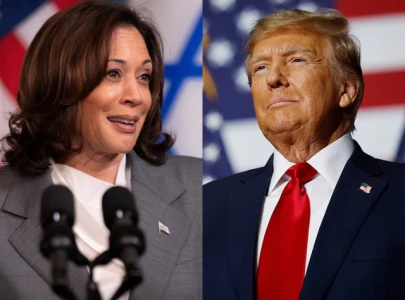




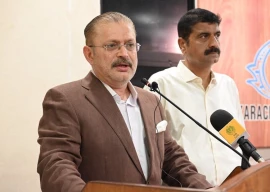

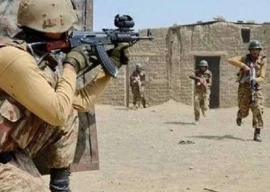
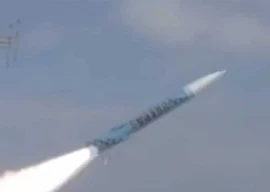
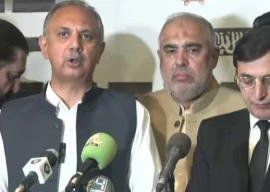

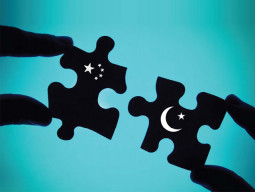






1730706072-0/Copy-of-Untitled-(2)1730706072-0-270x192.webp)
COMMENTS
Comments are moderated and generally will be posted if they are on-topic and not abusive.
For more information, please see our Comments FAQ